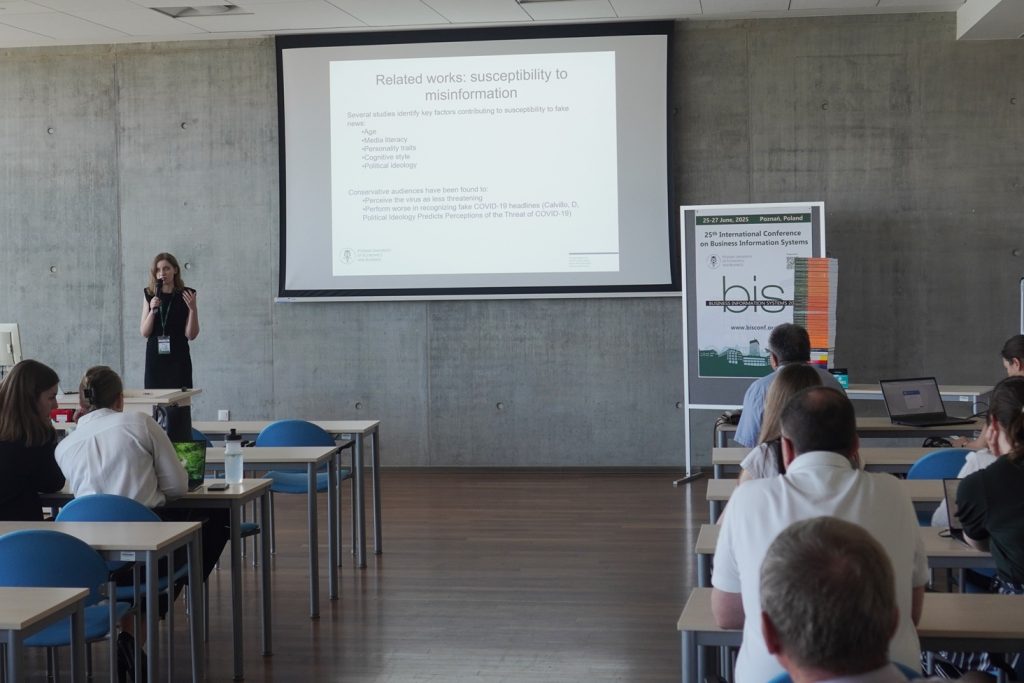
At the BIS 2025 conference, Ewelina Księżniak presented the results of a research project focused on the analysis of political narratives and misinformation spread via social media during the COVID-19 pandemic. Our researchers investigated how supporters of four Polish political parties – Law and Justice (PiS), Civic Platform (PO), Confederation, The Left (Lewica) – engaged in pandemic-related discussions. The study employed natural language processing techniques, including BERTopic and stance classification with GPT-4o, to identify the dominant topics and attitudes among Polish Twitter users.
The COVID-19 pandemic was not only a global health crisis but also a time of intense dissemination of misinformation, particularly on social media. A research team from our university examined this phenomenon from a unique perspective, analyzing how different Polish political parties and their supporters engaged in pandemic debates on Twitter. The study covered four political groups: Law and Justice (PiS), Civic Platform (PO), Confederation, The Left (Lewica). Using an innovative approach, the researchers analyzed several million pandemic-related tweets.
The findings show that political affiliation clearly influenced how users commented on the pandemic, responded to restrictions, and shared (mis)information. It turned out that among the supporters of certain parties, disinformation or skeptical content appeared more frequently, while others focused on narratives aligned with the scientific consensus. These insights not only shed light on the mechanisms behind the spread of misinformation but also help us better understand the role of politics and social media in shaping public opinion during health crises. This is an important step toward combating fake news and building a more informed society.
The BIS 2025 conference took place on June 25-27 at the Poznań University of Economics and Business. The paper entitled “Political Narratives and Misinformation During the COVID-19 Pandemic: A Comparative Analysis of Polish Political Parties on Twitter” is available on the Springer website. Authors of the publication: Ewelina Księżniak, Marcin Sawiński.
It’s worth mentioning the OpenFact project, led by Prof. Witold Abramowicz, and conducted at the Department of Information Systems. The project’s goal – to develop a tool for verifying the credibility of information sources in the Internet and for detecting fake news using artificial intelligence.